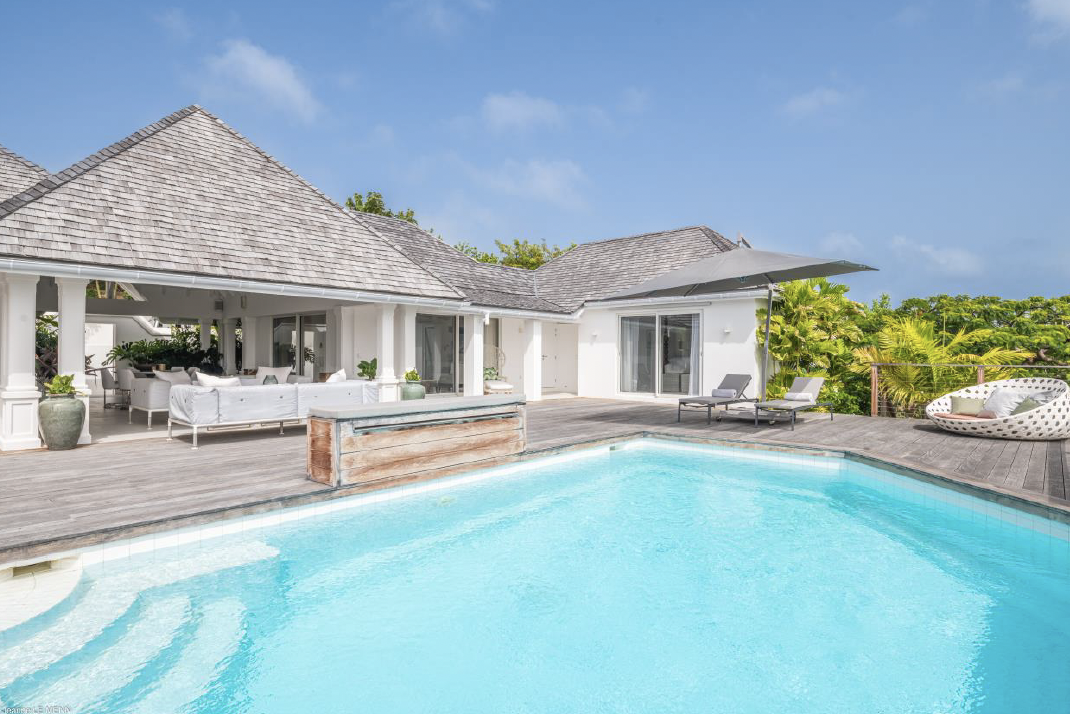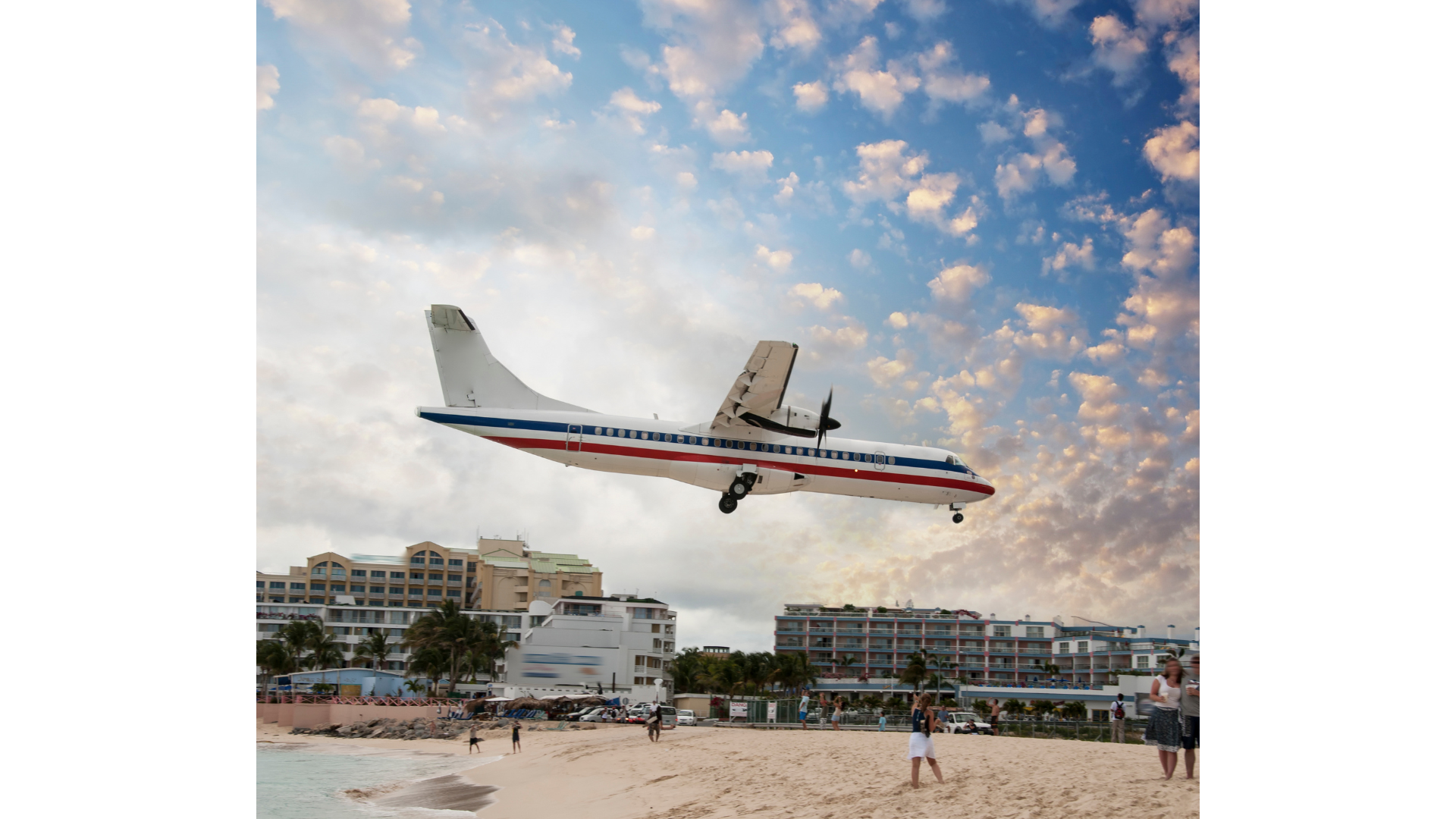Real estate investment in St Barts

Investing in Real Estate in Saint Barts?
Many investors who are looking to purchase a little piece of heaven alongside Saint-Barths’ beautiful beaches or observe breathtaking views from the top of one of its hill are reading our blog post now. Wherever you are located on the island, paradise is accessible by living simply and freely. No matter where you are coming from, you will feel an instant sense of belonging, or a deep connection with its paradise surrounding.
The attractiveness of Saint Barts’ local market of immovable assets has been proven valuable by the great public figures who have already published it. As the prices have always followed a positive trend, reaching the peak of the global real estate luxury market has been reached progressively and it continues.
Saint Barths is probably the only Caribbean island that has witnessed an uninterrupted expansion in the real estate segment, even during recent economic recessions (Hurricanes : Irma in 2017), Covid pandemic (2020-2022), Money crash (2008).
For those approving this destination’s potential, wishing to acquire real estate property in Saint Barts, there are some particulars to be taken into account.
Saint Barths is an open territory
Saint Barts is entirely open to foreign investment, which means that one can buy and sell movables or real estate freely. European, U.S., and Canadian citizens can also manage any local company or corporation. In addition, European Union citizens can reside in Saint Barts without any restrictions compared to other nationalities which must get a long-term visa to stay in Saint Barts for more than 90 days.
Saint Barts is not a tax heaven
Many medias have tried to represent Saint Barths as a tax heaven because it is located in the Caribbean and its residents don’t pay any income tax, however it is entirely wrong.
Saint Barts is an overseas territory of France with a special autonomous status taking into account its specificities and its high cost of living. Taxation, urban planning, environmental law, transportation, and tourism are the Territorial Council’s independent fields, governing local affairs.
Apart from these specific local laws, Saint Barts remains ruled under French Law.
Consequently, there is no bank secrecy, no off-shore banking or fiduciary services while all the Island professionals are submitted to the stringent anti-laundry French regulation.
Thanks to its good governance, there has hence not been a need to set an income tax. The primary tax resources of the Island are the registration tax applicable to the sale of properties (5 %) or of businesses (1.40%), the real estate capital gain tax (35% the first eight years then 20%), the touristic tax of 5% on hotel and villa rentals, the customs duties of 5% applicable on all imported goods, a symbolic corporate tax and also some taxes on the consumption of utilities (water, electricity) that are enough to finance the island needs.
Sale and Purchase transactions on immovable assets : guide
The sale and purchase transaction is usually conducted with cash, using the local currency (the Euro) to fix the costs. As a result, the parties can mutually decide if they will use the Euro or the U.S. dollar to fix and pay the price of the transaction; however the costs will always be calculated and paid in Euros at the exchange rate in force on the transaction date. Mortgages are quite challenging to obtain from local banks, notably for non-residents and are sometimes non-practicable due to the market’s extreme liquidity.
It is highly recommended to consult with a business attorney’s specialized assistance in addition to your real estate agent, who will be able to advise you on essential matters such as negotiating the price and conditions while giving you all the information you might need before you make an offer such as urban planning rules applying to a real estate property, any environmental or construction risks, feasibility of your project on the land you chose, easements, etc.
A business attorney will also determine the methods and the manners of a potential purchase, while taking into account one’s estate and tax planning. He/she will analyze and manage the prospective risks of the procedure and negotiate the terms of the sale and purchase agreement for you. He/she will set up the best corporate structure for you to invest.
The procedure is closed in two steps.
First the parties sign a preliminary sale and purchase agreement, and the buyer pays a deposit to secure the deal of usually 10% of the purchase price. Any number of conditions precedent may be included in the agreement, and the same can be used to protect the potential buyer from the loss of his earnest money deposit if a condition important to him is not satisfied on the last possible date set for closing.
After a period of minimum two months, the parties close the deed of conveyance which is the repetition of the preliminary contract but that includes the performance of all the conditions precedent set in the preliminary contract, and all of the information and formalities which were carried out to clear the transfer.
The transfer of real property occurs using a « Notaire ». The French Notaire is essentially an officer appointed by the French government to carry out certain transactions, notably those involving a modification of the land registry. So, he/she drafts and files the deed that the parties and their lawyers have negotiated. The French Notaire is also a “title insurer” since he/she must secure the transfer of a clear title. This is the reason why French people don’t use any title insurance because they don’t need it.
In the French tradition, the buyer usually bears the transfer tax, the land registry fee, and the notary’s fee entitled by the sale, which altogether amounts to roughly 6% of the total price.
The real property taxes in Saint Barths
No tax applies to the possession of the real property in Saint Barths, and there is no income tax applicable to the income retrieved from rentals.
However, rentals are subject to a payment of a touristic tax of 5% on the amounts paid by the tenants. It is generally collected and paid by the brokers on behalf of the owners.
Finally, a capital gain tax applies “to any transaction on immovable assets made in any capacity whatsoever, by a natural person or legal entity, trust or another group, regardless of the form, domiciled or not on the territory of Saint-Barthélemy and resulting from the transfer against payment of all developed or undeveloped real estate properties, any property rights on these real estate properties or shares, units, securities or other interests in a real estate property company.”(article 100 of the internal revenue clode)
The capital gain tax is set at a 35% rate during the eight first years of holding, then decreases to 20%. However, the considered capital gain is reduced by 10% for each year beyond the eighth year of holding.
For example, if one sells a real property making a capital gain of 1 million Euros after ten years, the calculation of the capital gain tax will be set as follows:
(2,000,000.00 – 20%) x 20% = €320,000.00
Is St Bart’s inheritance Tax exempt?
According to the local tax law, all the rights, moveable and real properties located in Saint Barths and comprised in an estate are exempt from any local taxation.




